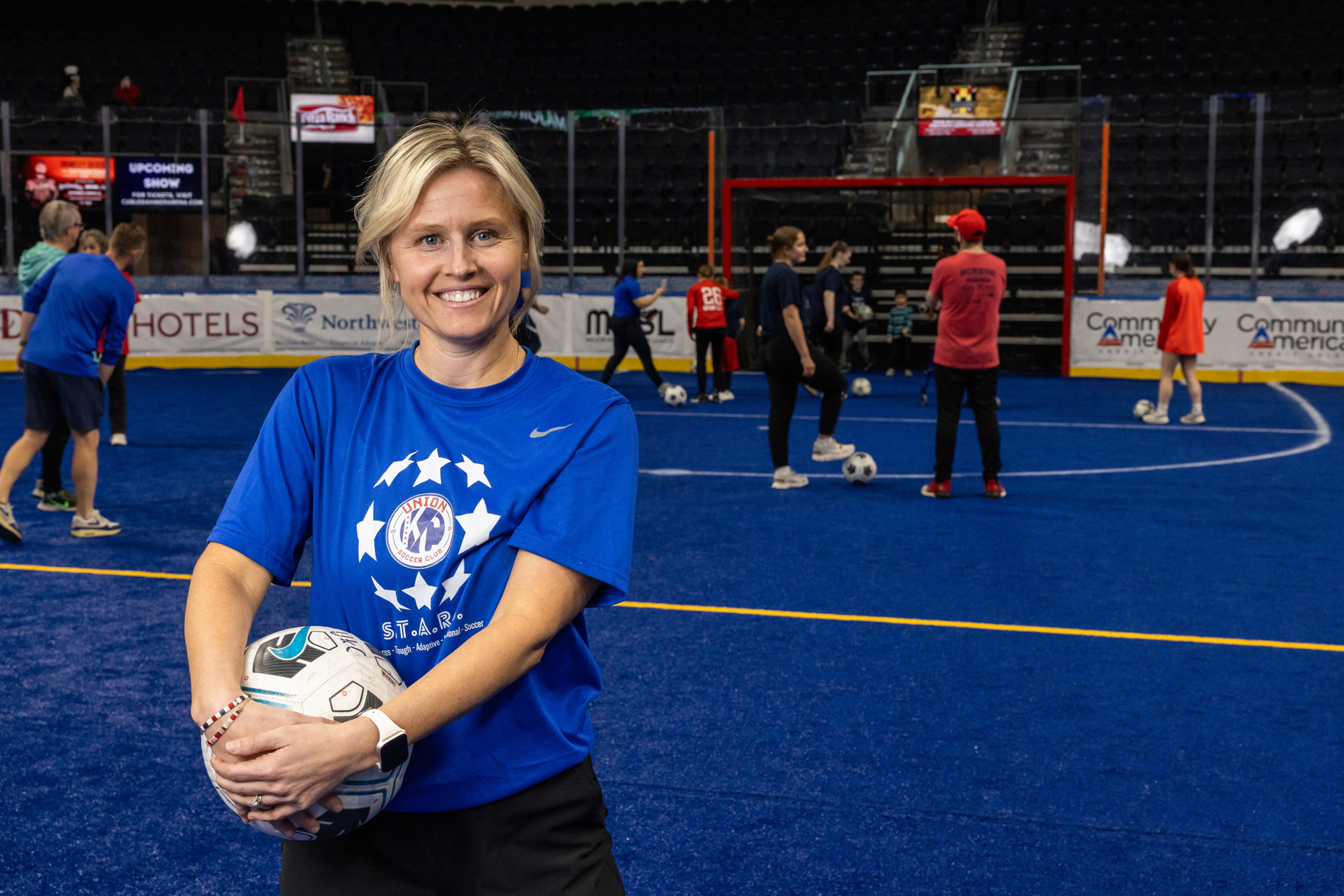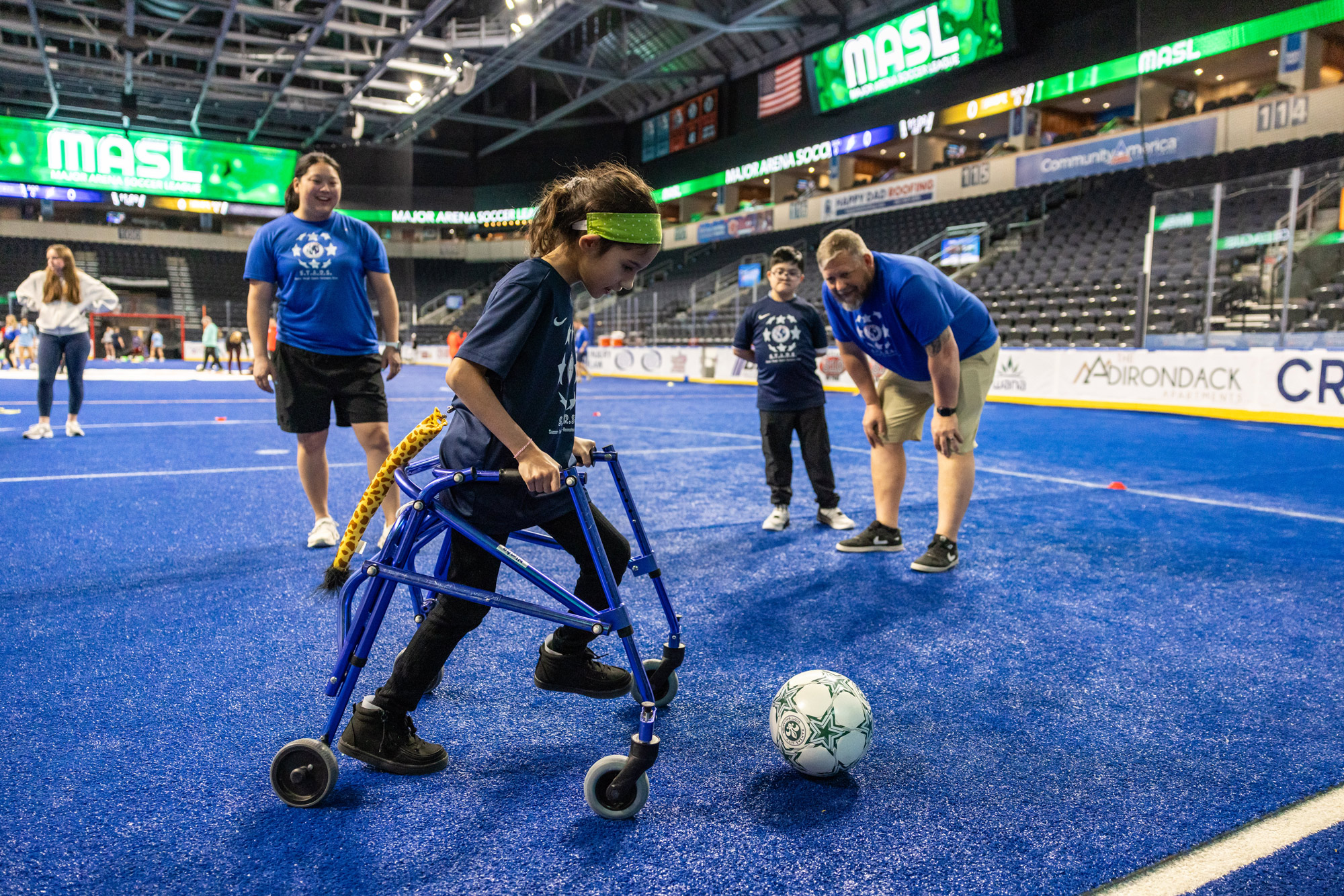
Published on Show Me Mizzou April 24, 2025
Photos by Abbie Lankitus
Jessica Lamb, a post-professional occupational therapy doctorate student at the University of Missouri, is merging her passions for occupational therapy and soccer to create a groundbreaking initiative with U.S. Soccer.
Through her doctoral capstone project, Lamb has developed a training module that equips coaches with the skills they need to better support athletes with hidden disabilities, including autism, ADHD and other learning differences.
Lamb, an occupational therapist for more than a decade, always has been drawn to working with children, particularly those with special needs. Her son, Oliver, is autistic, and navigating the world of youth sports with him illuminated gaps in accessibility and understanding. She saw efforts to be inclusive, but programs lacked the tools to fully support kids like Oliver.
“My husband and I are soccer people,” Lamb says. “He’s a coach from England, and I grew up playing the sport. I wanted to marry my OT skills and with his soccer skills and create a program that is empowering for our athletes.”
That realization led to Success Through Adaptive Recreational Soccer (STARS), a program with Union KC Soccer Club, where her husband coaches. STARS pairs licensed soccer coaches with occupational therapists, physical therapists and speech therapists to help children with disabilities succeed on the field.
Lamb saw an opportunity to expand on this idea and fold the entire experience into her doctoral capstone project through the Mizzou Department of Occupational Therapy. The result was an online learning module that serves as a continuing education course for U.S. Soccer coaches. They learn how to identify and accommodate children with disabilities and ensure they feel included and can thrive in the sport.
“Right now, coaches assume that kids with disabilities aren’t going to play, and families assume that coaches don’t want to help them,” she says. “But then who gets lost? The actual child. If a coach knew more, maybe they wouldn’t write a kid off.”

To read more articles like this, become a Mizzou Alumni Association member and receive MIZZOU magazine in your mailbox. Click here to join.



